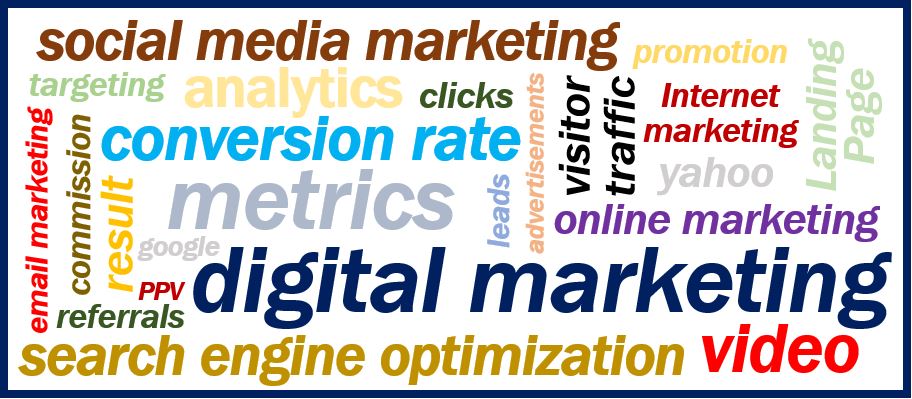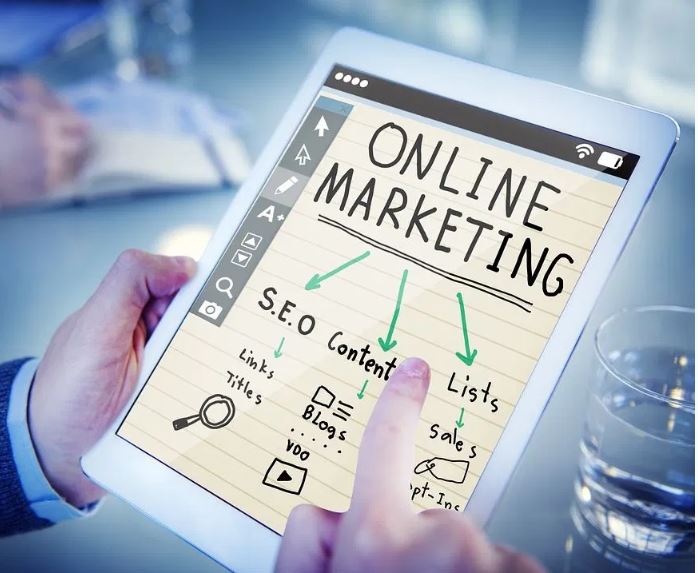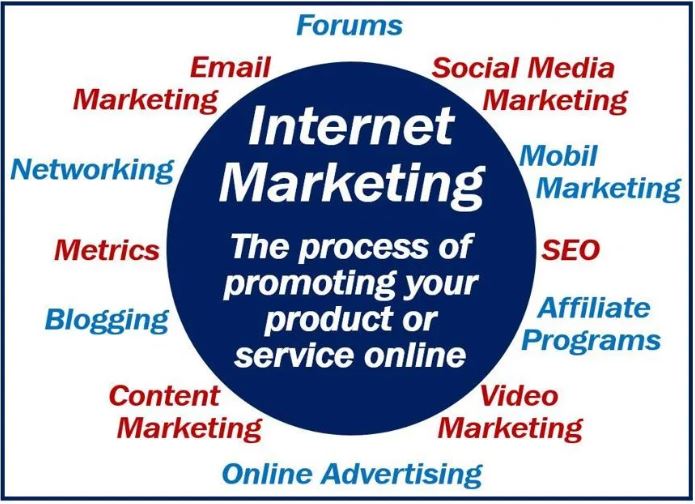Digital Marketing encompasses the promotion of products and services through the use of digital channels, primarily the Internet. This modern marketing approach has expanded rapidly with the rise of the Internet. Today, most marketing professionals use technology to promote their companies, goods, services, and brands.

Digital marketing media may include adverts and promotional material sent via the Internet, smartphones, tablets, electronic billboards, and social media. The term also includes sending promotional messages and videos using screens in train stations, bus stations, stores, lobby areas, and waiting rooms, i.e., places where people stand still for a while or in line.
Online marketing

The term online marketing has virtually the same meaning as digital marketing.
Commercial online channels
We refer to websites that broadcast or push requested content to subscribers as online channels. Typical channels offer information, entertainment, shopping, and email services to their customers.
With online channels, unlike, for example, via radio or TV, a company can measure the impact of its strategies or campaigns. It is also possible to determine how visitors arrived there and how they behave online.
Digital marketing professionals can determine which channels were best at converting visitors into customers, i.e., which ones have the best conversion rates. Before the Internet, this was virtually impossible.
Main advantages of digital marketing
- Cost – companies can reach lots of people much more cheaply than they could if they use traditional marketing approaches.
- Geotargeting – it is possible to target customers, prospects, and consumers according to where they live. A prospect is somebody or a company that a business believes could turn into a customer.
- Many options – there are numerous advertising tools, such as PPC (pay-per-click) advertising, local search integration, social media platforms, and email marketing.
- Metrics (analytics) – marketers can gather vast quantities of statistical data without extra costs.
Digital marketing professionals
We refer to digital marketing professionals as digital marketers. Their qualifications, knowledge, and skills go significantly beyond traditional marketing strategies and tools. They are in charge of, for example, building brand awareness and generating leads using digital channels.
According to the Digital Marketing Institute, digital marketers use measurable analytics to pinpoint weaknesses and boost performance across various channels. Depending on the organization, you might be in charge of the entire digital strategy or focus on just one aspect. Typically, smaller companies have a single generalist or manager handling digital marketing, while larger corporations distribute these responsibilities across an entire team or even several departments.
Internet Marketing

Internet marketing is nearly the same as digital marketing, but does not include closed network ads in, for example, waiting rooms. As the name implies, Internet marketing only applies to marketing campaigns done via the Internet.
As most of digital marketing activities today occur online, most of the time the two terms are identical (but not always).
